What is Solar energy ?
Solar energy is the energy harnessed from the sun. This energy is in the form of solar radiation, which makes the production of electricity possible.
Electricity can be produced directly from photovoltaic (PV) cells. These cells are made from materials which exhibit “photovoltaic effect”, i.e. when sunshine hits the PV cells, the photons of light excite the electrons in the cell and cause them to flow, generating electricity.
Solar energy is a renewable, free, widely available and clean form of energy. The large magnitude of solar energy falling on the earth makes it an attractive source of electricity. In fact, according to estimates, the annual potential of solar energy is several times larger than the total world energy consumption.
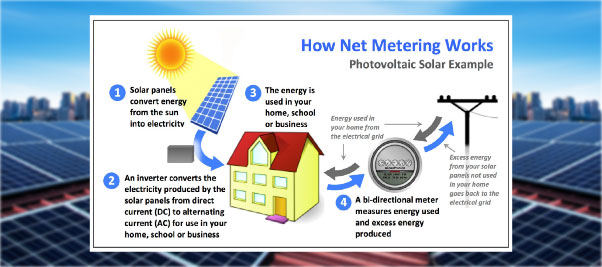
How does Solar Work?
See how solar energy interacts with the grid and powers your home during the day.
Scenario-1: Morning
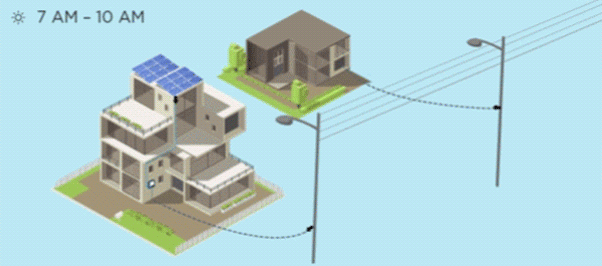
Energy Flow
- Solar plant will start generating power
- Your energy demand will be first met by solar power
- In case of additional energy requirement, power will be drawn from the Grid
Savings in Electricity Bill
- Majority of the energy requirement will be catered from Solar Energy, thus reducing your DISCOM electricity bill
Scenario-2: Afternoon
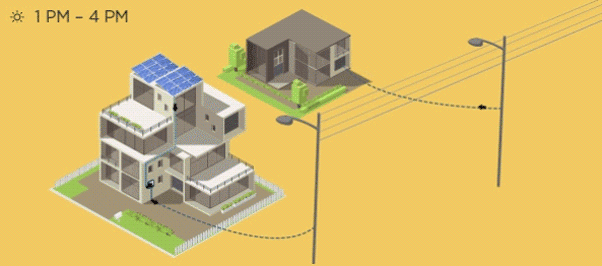
Energy Flow
- During daytime, Solar energy generation would be almost sufficient to meet your electricity demand
- Surplus energy generated from Solar will be fed back to grid
Savings in Electricity Bill
- Surplus energy fed back to the grid would be recorded in the Net Meter & credited to your account
Scenario 3: Night
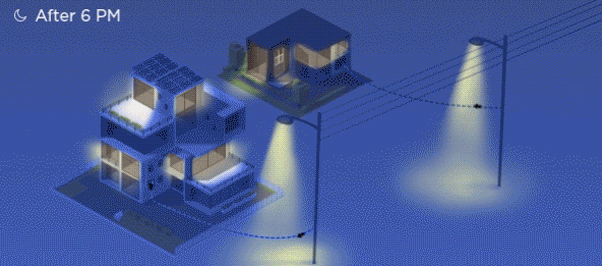
Energy Flow
- After sunset, your electricity requirement will be catered mainly by the grid supply
Savings in Electricity Bill
- After sunset, your electricity requirement will be catered mainly by the grid supply
Benefits From Solar Energy?
- Reduction in Utility Electricity Bill; Higher benefits in TOD regime
- Long term reliable power source (up to 25 years )
- Net metering framework under which consumer can export the surplus solar power to DISCOM and avail suitable benefits
- Value creation from unutilized roofs
- Mitigates Air Pollution and Climate Change
- Low Maintenance
- Capital Subsidy for Residential category
- Beneficial for the community and Mother Earth
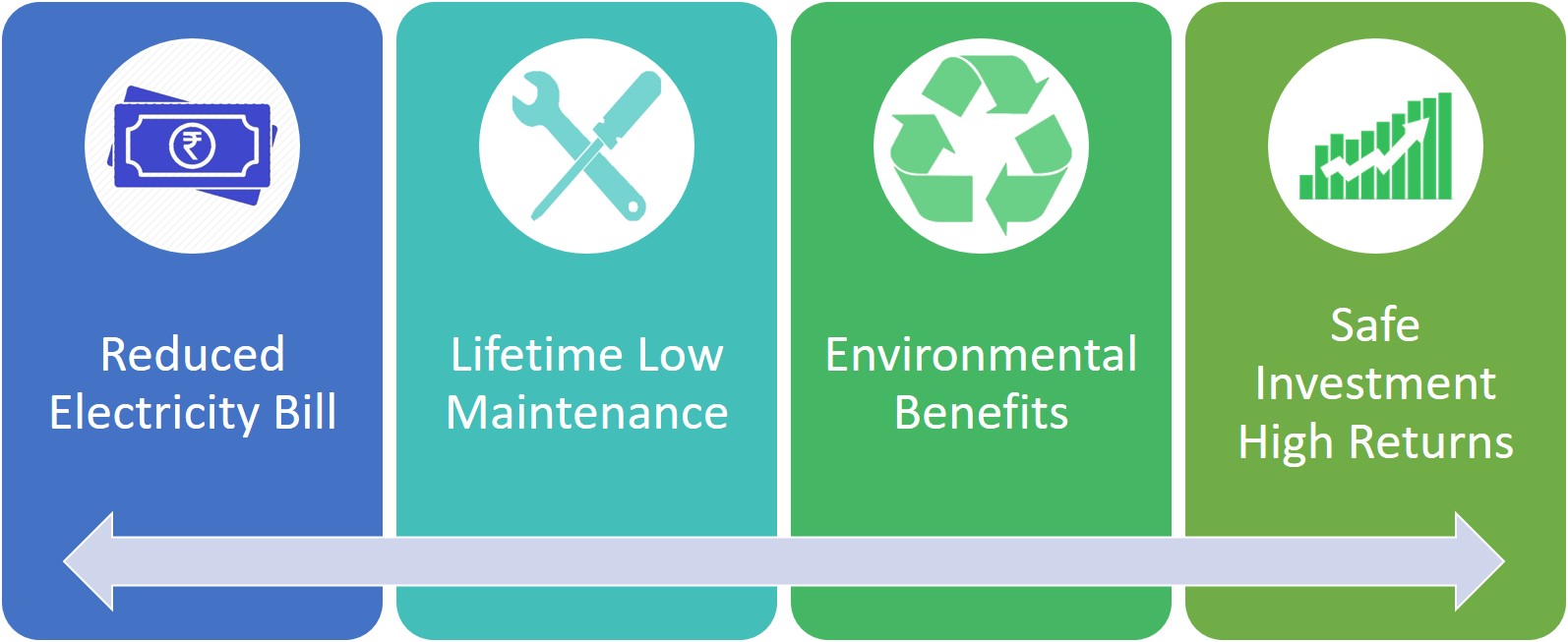
TATA Power-DDL’s Solar Rooftop Journey
With an objective to promote renewable energy and a special focus on Solar Rooftop solutions in India, Tata Power-DDL has undertaken a number of initiatives and has made its presence felt in the industry, as outlined below.
- TATA POWER-DDL’S SOLAR ROOFTOP JOURNEY
| FINANCIAL YEAR | ROOFTOP SOLAR CAPACITY (MWp) |
|---|---|
| FY 25-26 (Sept '25) | 116.14 |
| FY 24-25 | 96.78 |
| FY 2023-24 | 64.767 |
| FY 2022-23 | 55.667 |
| FY 2021-22 | 47.827 |
| FY 2020-21 | 43.182 |
| FY 2019-20 | 35.781 |
| Up to March 2019 | 24.867 |
- INSTALLATION SIZE OF ROOFTOP SOLAR
| Capacity Slab | NO. OF CONNECTIONS |
|---|---|
| 1-10 kWp | 4731 |
| 11-50 kWp | 1155 |
| 51-100 kWp | 202 |
| 101-500 kWp | 106 |
| 501-1000 kWp | 12 |
| Above 1000 kWp | 5 |
| Grand Total | 6211 |
Brand Leadership
Tata Power-DDL received the highest honour rating of SP IA (pronounced as solar power one A) as a "System Integration Grading for Solar PV projects" from ICRA, which indicates 'highest performance capability' & 'highest financial strength' of Tata Power-DDL to undertake solar PV projects. Tata Power-DDL is the only utility channel partner of MNRE with highest grading SP1A.

 Login
Login




